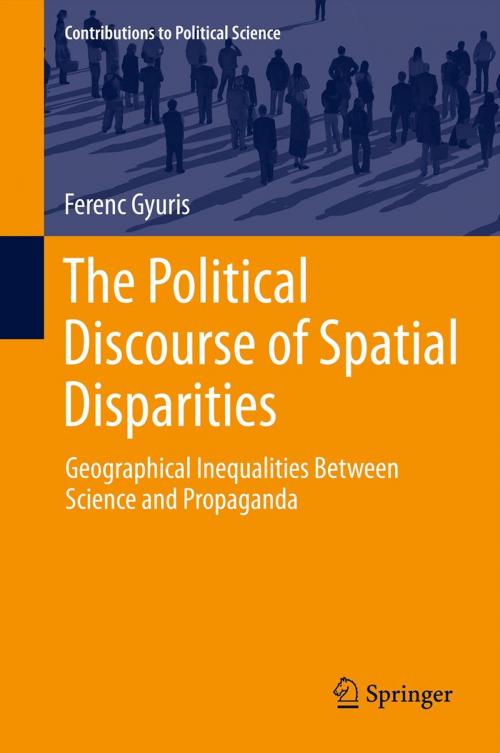The Political Discourse of Spatial Disparities
Geographical Inequalities Between Science and Propaganda
Nonfiction, Social & Cultural Studies, Social Science, Human Geography, Science & Nature, Science, Political Science| Author: | Ferenc Gyuris | ISBN: | 9783319015088 |
| Publisher: | Springer International Publishing | Publication: | October 30, 2013 |
| Imprint: | Springer | Language: | English |
| Author: | Ferenc Gyuris |
| ISBN: | 9783319015088 |
| Publisher: | Springer International Publishing |
| Publication: | October 30, 2013 |
| Imprint: | Springer |
| Language: | English |
This work aims to provide unique insights into the multidisciplinary research on spatial disparities from an unconventional point of view. It breaks with the conventional narrative that tends to interpret this theoretical tradition as a series of factual contributions to a better understanding of the issue. Instead, related theories are investigated in their political, economic, and social contexts, and spatial disparity research is presented as a political discourse. It also reveals how the propagandistic problematization or de-problematization of geographical inequalities serves the substantiation of political goals, while taking advantage of the legitimate authority of science and the image of scientific objectivity. The book explains how the discourse has functioned from 19th century social physics over the Cold War period up to Marxist geographies of the current neoliberal age, and in what way and to what extent political considerations prevent related concepts producing ‘objective’ knowledge about the complex phenomenon of spatial inequalities.
This work aims to provide unique insights into the multidisciplinary research on spatial disparities from an unconventional point of view. It breaks with the conventional narrative that tends to interpret this theoretical tradition as a series of factual contributions to a better understanding of the issue. Instead, related theories are investigated in their political, economic, and social contexts, and spatial disparity research is presented as a political discourse. It also reveals how the propagandistic problematization or de-problematization of geographical inequalities serves the substantiation of political goals, while taking advantage of the legitimate authority of science and the image of scientific objectivity. The book explains how the discourse has functioned from 19th century social physics over the Cold War period up to Marxist geographies of the current neoliberal age, and in what way and to what extent political considerations prevent related concepts producing ‘objective’ knowledge about the complex phenomenon of spatial inequalities.















